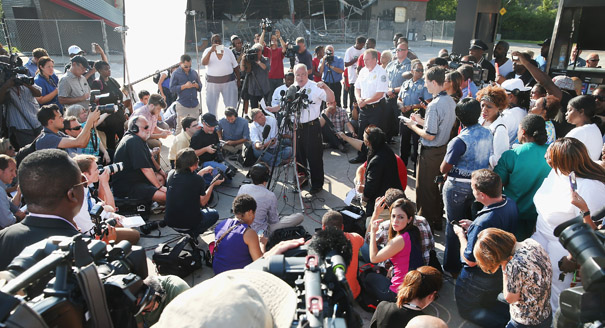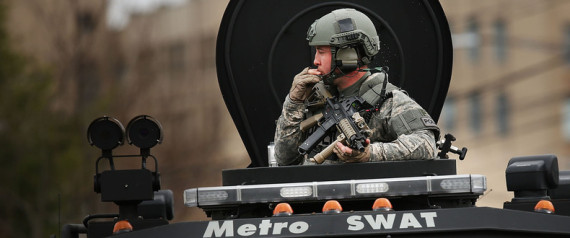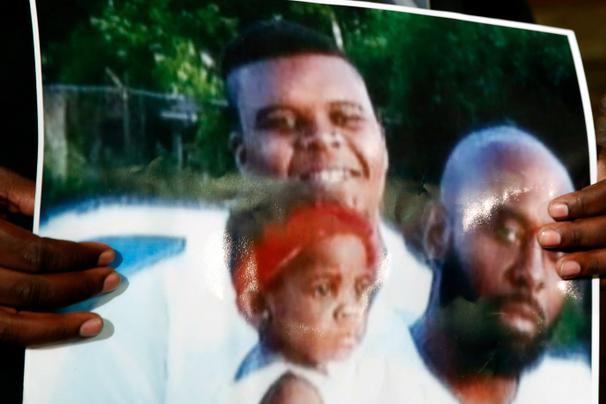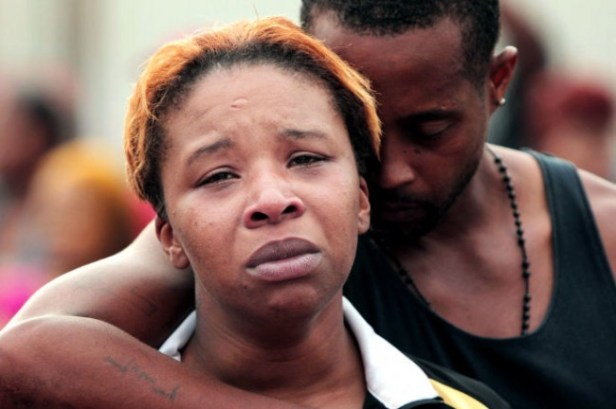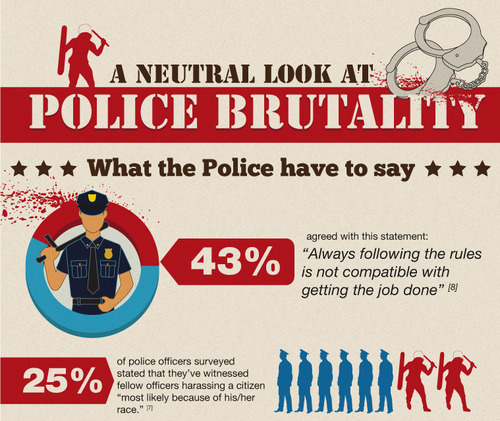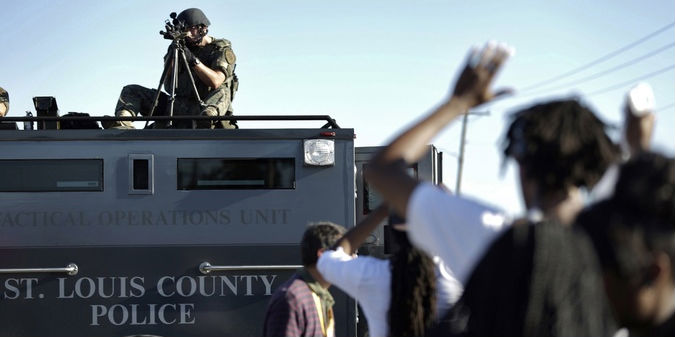As the police use of tear gas and First Amendment limitations continue in Ferguson, Missouri—the small town wracked by protests following the still murky police killing of an unarmed black teenager, Michael Brown—there are a number of reasons to believe this story is just the tip of the iceberg.
Videos by Rare
Here are 5.
1. Because we only care about policy brutality when we’re forced to care.
Though the largely peaceful protests in Ferguson have unfortunately been tarnished by the actions of a few looters, its citizens have accomplished a rare feat: They have made the whole country care about police brutality.
Let’s face it: Normally, we don’t care enough. While libertarians have been talking about police militarization for years and the black community is well aware of racial bias in the justice system, most of us too easily forget, or are simply unaware of, the many cases of police misconduct that occur on a regular basis.
Here are stories from the last month alone:
- EMTs have to stop four NYPD officers from beating a handcuffed, emotionally disturbed patient on a stretcher
- Six Philadelphia police charged with robbery, extortion, and kidnapping
- Harrisburg, PA police order a man with a video camera to leave the area while they body slam a drunk man
- LAPD officers under investigation for ferociously kicking and punching a woman placed in a holding cell under suspicion of petty theft
- NYPD officer charged with breaking into a woman’s apartment and beating her
Have you heard of any of these? I hadn’t. And without the protesters in Ferguson, Mike Brown would be just another entry on that much-abbreviated list of recent incidents.
2. Because we arm police like soldiers and then wonder why they act like soldiers.
This is a topic which Radley Balko has amply addressed for years (seriously, read this), but this comment from the past week really nailed it:
Give a man access to drones, tanks, and body armor, and he’ll reasonably think that his job isn’t simply to maintain peace, but to eradicate danger. Instead of protecting and serving, police are searching and destroying.
Following the reports of police violence in Ferguson, President Obama and administration officials condemned police misconduct. But the fact is, they’re complicit: The military equipment, vehicles, and weapons which so often contribute to police brutality are frequently presents from the federal government (to the tune of hundreds of millions of dollars a year, with minimal proof required that these weapons are in any sense “needed”).
The Pentagon has confirmed that some of the equipment used by police in Ferguson is from their stockpile.
3.Because we still put victims on trial.
In the immediate wake of Brown’s death, speculation immediately began about what sort of person he was: He was going to college, said his family and friends. He was a “gentle giant” who didn’t make trouble at school and wanted to own his own business. The police tell a different story, claiming Brown stole cigars from a convenience store shortly before he was killed—yet admitting that the officer who killed him had no idea he was a suspect.
But here’s the thing: It really doesn’t matter whether Brown was a nice kid. And it doesn’t matter whether he stole some cigars.
Because stealing cigars or failing to be a nice kid are not actions worthy of death. Period.
Because life is valuable. Period.
Because the family and friends of Michael Brown—and every other victim of police violence—shouldn’t have to prove that their loved one was worthy of living to ensure justice is served. Period.
4. Because we refuse to admit race is a factor.
Senator Rand Paul made headlines last week with his op-ed response to Brown’s shooting and the protests and violence that followed. What made Paul’s comments noteworthy? The fact that he highlighted not just the problem of law enforcement militarization but also the role race plays in police brutality.
“If I had been told to get out of the street as a teenager, there would have been a distinct possibility that I might have smarted off,” Paul said. “But, I wouldn’t have expected to be shot.” That’s because he’s white, and it is objectively safer to live in America without fear of police violence if you are white.
And no, it’s not just about different crime rates. In Ferguson specifically, about two-thirds of the population is black, but 92 percent of police searches and 93 percent of arrests involved black targets.
Yet white citizens in Ferguson are actually more likely to be carrying illegal items than black people: one out of three white people were found with contraband like drugs or weapons in 2013, but one out of five black people had anything illegal. So why is the lower risk population getting the bulk of police attention?
Sen. Paul wrote, “Given the racial disparities in our criminal justice system, it is impossible for African-Americans not to feel like their government is particularly targeting them.”
And until we admit that problem exists, we can’t make real progress toward fixing it.
5. Because we still keep saying, “It’s just a few bad apples.”
Pundit Sean Hannity offered an all-too-common response to police brutality while commenting on unrest in Ferguson last week: “There are some bad apples [among police]. But you can’t taint the whole profession because of the actions of a few.”
While I appreciate Hannity’s desire to be fair, he’s fundamentally wrong. That’s not to say that all police are bad people, but it is to say that we’re way past a “few bad apples.”
Police brutality is a systemic problem—and police themselves know it: A DOJ study found that 84 percent of cops say they’ve seen coworkers use excessive force on civilians, and 61 percent admit they don’t always report “even serious criminal violations that involve abuse of authority by fellow officers.”
We can put a stop to police brutality—even something as simple as requiring officers to wear cameras at all times can make a huge difference.
But that means no more “bad apples” excuses. No more ignoring race as a factor. No more putting victims on trial. No more militarizing police.
No more pretending these problems don’t exist.

